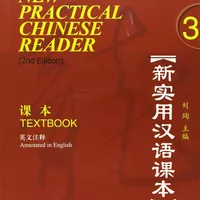Lesson 31 - Dialog 2
|Dialog
Lektion 31 - Dialog 2
Lesson 31 - Dialog 2
Lección 31 - Diálogo 2
Leçon 31 - Dialogue 2
Lezione 31 - Dialogo 2
Lekcja 31 - Dialog 2
Lição 31 - Diálogo 2
Урок 31 - Диалог 2
Lesson 31 - Dialog 2
宋华 : 大为 , 刚才 有人 给 你 打电话 了 。
Song Hua|||||||
Song Hua||just now|||||
|Dawei|agora há pouco|||||
Song Hua: Dawei, someone called you just now.
马 大为 : 那 可能 是 我 的 一个 朋友 打来 的 。
|||||||||a appelé|
|||||||||called|
|||||||||ligou|
Ma Dawei: That might be a call from a friend of mine.
要 放长假 了 , 有 几个 朋友 想 去 旅游 , 可是 还 没有 决定 去 哪儿 。
|prendre des vacances|||||||||||décidé||
|take a long vacation|||||||||||||
|tirar férias longas|||||||viajar||||decidido||
It's a long holiday. Some friends want to travel, but they haven't decided where to go.
宋华 : 中国 的 名胜古迹 太多 了 , 有名 的 少 说 也 有 五六百个 。
|||sites historiques|||||||||cinq ou six
|||famous historical sites|too many||famous||few||||five or six hundred
|||pontos turísticos e locais históricos|||||||||quinhentos ou seiscentos
Song Hua: China has too many scenic spots and historical monuments, there are at least five or six hundred famous ones.
只要 你 喜欢 旅游 每个 假期 都 有 地方 去 。
|||||vacances||||
|||travel||holiday||||
|||||férias||||
As long as you like to travel, there are places to go every holiday.
马 大为 : 先 去 哪儿 呢 ?
Ma Dawei: Where should we go first?
我 已经 去过 两三个 地方 了 , 比如 海南岛 、 西安 。
|||deux ou trois||||Île de Hainan|Xi'an
|||two or three||||Hainan Island|Xi'an
I have been to two or three places, such as Hainan Island and Xi'an.
对 了 , 还有 泰山 。
|||Mont Tai
|||Mount Tai
By the way, there is Taishan.
宋华 : 你 喜欢 有 名胜古迹 还是 喜欢 看 自然 景色 ?
||||sites historiques||||nature|paysages naturels
||||historical sites||||nature|scenery
Song Hua: Do you like scenic spots and historical sites or natural scenery?
马 大为 : 都 喜欢 。
Ma Dawei: Both like it.
我 特别 喜欢 爬山 , 爬 又 高 又 美的 山 。
|particulièrement||||||||
|||||||||mountain
I especially like climbing mountains, both high and beautiful mountains.
宋华 : 好 啊 , 去 爬 珠穆朗玛峰 吧 , 那 是 全世界 最高 的 山 。
|||||Mont Everest|||||||
|||||Mount Everest||||the whole world|||
Song Hua: Okay, let's climb Mount Everest, which is the highest mountain in the world.
马 大为 : 那座 山 高 了 点儿 , 我 的 身体 差 了 点儿 , 时间 也 少 了 点儿 。
||that||||||||not so good|||||||
Ma Dawei: That mountain is a little higher, my body is a little worse, and I have a little less time.
宋华 : 黄山 你 还 没有 去过 吧 ?
|Mont Huangshan|||||
|Yellow Mountain|||||
Song Hua: You haven't been to Huangshan yet, have you?
马 大为 : 还 没 去过 。
|Dawei|||
Ma Dawei: Haven't been there yet.
黄山 怎么样 ?
How about Huangshan?
宋华 : 那儿 的 景色 是 世界 有名 的 早 在 1200 年 以前 黄山 就 已经 是 中国 的 名胜 了 。
||||||fame||tôt||||||||||site touristique|
||||||||||||||||||scenic spot|
Song Hua: The scenery there is world-famous. Huangshan was already a famous place in China as early as 1200 years ago.
你 在 那儿 可以 看到 从早到晚 景色 在 不停 的 变化 着 。
|||||du matin au soir|||sans cesse||changement|
|||||from morning till night|scenery|||||
You can see the scenery constantly changing from morning to night there.
而且 不同 的 人 看 感觉 也 不 一样 。
And different people see it differently.
它 最美 的 景色 是 白云 、 松树 和 山峰 。
|||||nuages blancs|pin sylvestre|et|montagnes
|most beautiful||||white clouds|pine tree||mountain peak
Its most beautiful scenery is white clouds, pine trees and mountain peaks.
你 从 山上 往下 看 , 白云 就 像 大海 一样 , 人们 叫 它 “ 云海 ”。
|||vers le bas||nuage blanc||||||||mer de nuages
|||down||white clouds|||the sea|||||sea of clouds
When you look down from the mountain, the white clouds are like the sea. People call it "the sea of clouds."
黄山 的 松树 和 山峰 也 都 很 有 特色 很多 山峰 样子 都 奇怪 , 所以 叫做 “ 奇峰 ”, 松树 就 长 在 这些 奇峰 上 。
Mont Huang||||pics de montagne|||||caractéristiques||pics de montagne|forme||étranges||appelé|Pics étranges|||||||
||||||||||||shape||strange|||peculiar peaks||||||strange peaks|
The pine trees and peaks of Huangshan Mountain are also very distinctive. Many peaks look strange, so they are called "Qifeng". Pine trees grow on these strange peaks.
云海 、 松树 和 奇峰 在 一起 真是 美极了 。
|||||||Magnifique
|||strange peaks||||so beautiful
The sea of clouds and the pine tree He Qifeng are really beautiful together.
不但 中国 人有 喜欢 游 黄山 , 而且 外国 朋友 也 常去 那儿 。
||||visiter|||étrangers|||souvent vont|
||people||visit||||||often go|
Not only Chinese people like to visit Huangshan, but also foreign friends often go there.
马 大为 : 黄山 有 一颗 树 , 叫做 “ 迎客松 ” 吧 ?
||||un|||Pin de bienvenue|
||||one|tree||Welcoming Pine|
Ma Dawei: There is a tree in Huangshan called "Welcoming Pine", right?
Ma Dawei:黄山には「WelcomingPine」という木がありますよね?
마다웨이: 황산에는 '환영의 소나무'라는 나무가 있지 않나요?
宋华 : 对 , 那颗 古松 有 1000 多岁 了 。
||ce pin ancien|vieux pin|||
||that|ancient pine||years|
Song Hua: Yes, that ancient pine is more than 1,000 years old.
它 每天 都 在 热情 的 欢迎 游 黄山 的 朋友 们 。
It warmly welcomes friends who visit Huangshan every day.
马 大为 : 好 , 下星期 我 就 去 黄山 旅游 。
|||semaine prochaine|||||
|||next week|||||
Ma Dawei: Okay, I will go to Huangshan for a tour next week.

